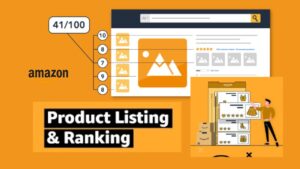Introduction:
In the fast-paced world of e-commerce, a well-executed marketing campaign can be the difference between obscurity and success. As online retailers navigate the dynamic landscape, understanding and implementing strategic marketing campaigns is essential. In this comprehensive guide, we’ll explore the intricacies of successful marketing campaigns in e-commerce, offering insights, tips, and strategies to help your business thrive in the digital marketplace.
- Know Your Audience:
The foundation of any successful marketing campaign is a deep understanding of your target audience. Conduct thorough market research to identify your ideal customers, their preferences, and buying behaviors. Tailor your campaigns to resonate with their needs and aspirations.
- Set Clear Goals:
Before launching a marketing campaign, define clear and achievable goals. Whether it’s increasing sales, driving website traffic, or building brand awareness, having specific objectives will guide your strategy and help measure success.
- Leverage Social Media Platforms:
Social media is a powerful tool for e-commerce marketing. Choose platforms that align with your target audience and create engaging content. Utilize paid advertising, influencer partnerships, and interactive campaigns to enhance your brand’s visibility and engagement.
- Optimize Email Marketing:
Email marketing remains a cornerstone of successful e-commerce campaigns. Build a segmented email list, craft compelling and personalized content, and use enticing calls-to-action. Automated email campaigns, including cart abandonment emails and special promotions, can significantly impact conversion rates.
- Invest in Influencer Marketing:
Collaborating with influencers in your industry can broaden your reach and build trust with potential customers. Identify influencers whose audience aligns with your target market, and create authentic partnerships that highlight your products in a genuine and relatable way.
- Implement SEO Strategies:
Optimizing your website for search engines is critical for long-term success. Conduct keyword research, optimize product descriptions, and create quality content. A well-optimized site not only improves search rankings but also enhances the overall user experience.
- Run Paid Advertising Campaigns:
Consider paid advertising campaigns on platforms like Google Ads and social media. Target specific demographics, utilize retargeting ads, and monitor campaign performance closely. Adjust your strategy based on analytics to maximize your return on investment.
- Create Limited-Time Offers and Promotions:
Generate a sense of urgency by incorporating limited-time offers and promotions into your marketing campaigns. Whether it’s a flash sale, exclusive discount, or bundled deals, time-sensitive incentives can prompt quicker purchasing decisions.
- Monitor and Analyze Metrics:
Regularly track and analyze key performance metrics to evaluate the success of your marketing campaigns. Metrics like conversion rates, click-through rates, and customer acquisition cost provide valuable insights. Use these insights to refine your strategies for future campaigns.
- Encourage User-Generated Content:
Harness the power of user-generated content (UGC) to build authenticity and trust. Encourage customers to share their experiences with your products through reviews, testimonials, and social media. UGC serves as powerful social proof and can be integrated into your marketing campaigns.






